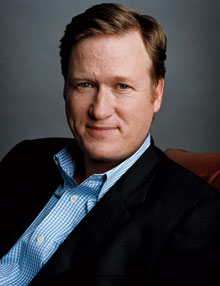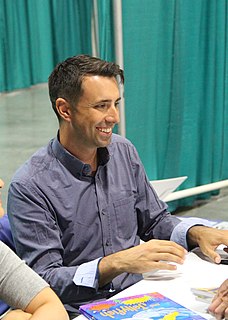A Quote by Ravi Subramanian
Any author gets inspired by the experiences and events that happen to him or his immediate circle. While that's where the seed or the idea germinates, by the end of the story, it accounts for hardly anything in the book.
Related Quotes
The object we call a book is not the real book, but its potential, like a musical score or seed. It exists fully only in the act of being read; and its real home is inside the head of the reader, where the symphony resounds, the seed germinates. A book is a heart that only beats in the chest of another.
When romances do really teach anything, or produce any effective operation, it is usually through a far more subtle process than the ostensible one. The author has considered it hardly worth his while, therefore, relentlessly to impale the story with its moral as with an iron rod-or, rather, as by sticking a pin through a butterfly-thus at once depriving it of life, and causing it to stiffen in an ungainly and unnatural attitude.
What I like best is a book that's at least funny once in a while. What really knocks me out is a book that, when you're all done reading it, you wish the author that wrote it was a terrific friend of yours and you could call him up on the phone whenever you felt like it. That doesn't happen much, though.
I’ve always believed that as an author, I do 50% of the work of storytelling, and the reader does the other 50%. There’s no way I can control the story you tell yourself from my book. Your own experiences, preferences, prejudices, mood at the moment, current events in your life, needs and wants influence how you read my every word.
Any story that gets us thinking, and particularly young people, thinking why? Whether it's as a result of reading the book, or coming out of the theatre or the cinema, I think we should just simply be asking the question 'why'? Why did it happen to those people? Was it necessary? And anything that gets us thinking like that is really important.
No one really knows the value of book tours. Whether or not they're good ideas, or if they improve book sales. I happen to think the author is the last person you'd want to talk to about a book. They hate it by that point; they've already moved on to a new lover. Besides, the author never knows what the book is about anyway.
Any man having one drop of the seed of Cane in him Cannot hold the priesthood ... I will say it now in the name of Jesus Christ. I know it is true & they know it. The Negro cannot hold one particle of Government ... if any man mingles his seed with the seed of Cane the only way he Could get rid of it or have salvation would be to Come forward & have his head Cut off & spill his Blood upon the ground. It would also take the life of his Children.
Anyone of any age, any race, any background, any education - if they write an interesting enough book - can become a published author. What it takes is imagination, the ability to put words on a paper in an interesting, perhaps even unique way, the fortitude to rewrite, rewrite, rewrite, and polish, edit, polish, edit until the story sort of sings. I think everyone has a story inside him, but only a few have the persistence and, of course, the interest, to write it down and see it through.
Reading a book should be a conversation between you and the author. Presumably he knows more about the subject than you do; if not, you probably should not be bothering with his book. But understanding is a two-way operation; the learner has to question himself and question the teacher, once he understands what the teacher is saying. Marking a book is literally an expression of your differences or your agreements with the author. It is the highest respect you can pay him.


































